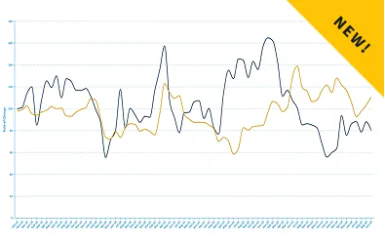ORR Calls For Immediate Action On Wildfire Fighting Costs
The Outdoor Recreation Roundtable (ORR) has expressed its strong support for the Wildfire Disaster Funding Act, legislation introduced in 2017 in both the United States Senate and the U.S. House of Representatives. In a January 17 letter to House and Senate leadership – as well as other key Members of Congress and administration officials – ORR urged the nation’s leaders to reform the federal funding formula for wildfire suppression.
While the U.S. Forest Service and its firefighting partners can suppress or manage 98 percent of fires during initial attack, a few escape and become catastrophically large fires that are extremely costly to contain. These massive fires account for 1 to 2 percent of total fires but result in 30 percent or more of fire suppression expenditures.
Today, the agency spends over half of its budget on fire management activities compared to 16 percent in 1995. The rapidly rising cost of firefighting creates two funding problems for the Forest Service. Primarily, the 10-year average mechanism through which Congress funds fighting wildfires is outdated and does not consider the rapid increase in fire management costs in recent years. This results in more funds directed toward fire suppression efforts and less funding available to keep forests healthy. Secondly, when funding for wildfires is inadequate, as it has been for many years, the Forest Service is routinely forced to transfer funds from non-fire programs.
“Recreation on public land is an important part of the $887 billion outdoor recreation economy,” said Frank Hugelmeyer, president of the RV Industry Association. “Without adequate funding for wildfires, the Forest Service will be forced to continue to spend money meant for improvements to recreation infrastructure on wildfire. This jeopardizes recreation programs on public lands vital to our segment of the U.S. economy.”
According to the U.S. Department of Agriculture, the cost of wildfire suppression on the national forests surpassed $2.3 billion in 2017 – consuming an increasing share of the U.S. Forest Service budget – as more than 8.5 million acres burned and vital recreation infrastructure was destroyed. As a result, investment in trails, campgrounds and other recreation infrastructure desperately in need of modernization has declined. The agency estimates that it will devote more than 66 percent of its budget to firefighting by 2021, compared to 16 percent in 1995.
ORR is calling for immediate action on the Wildfire Disaster Funding Act, which offers a comprehensive and permanent solution to the nearly uncontrolled cost of fighting fires: “Action is needed now to provide stability for long-term wildfire mitigation practices and to protect other vital public interests in our nation’s forests.”
Read ORR’s full letter here.
Please Sign in to View
Log in to view member-only content.
If you believe you are receiving this message in error contact us at memberservices@rvia.org.

